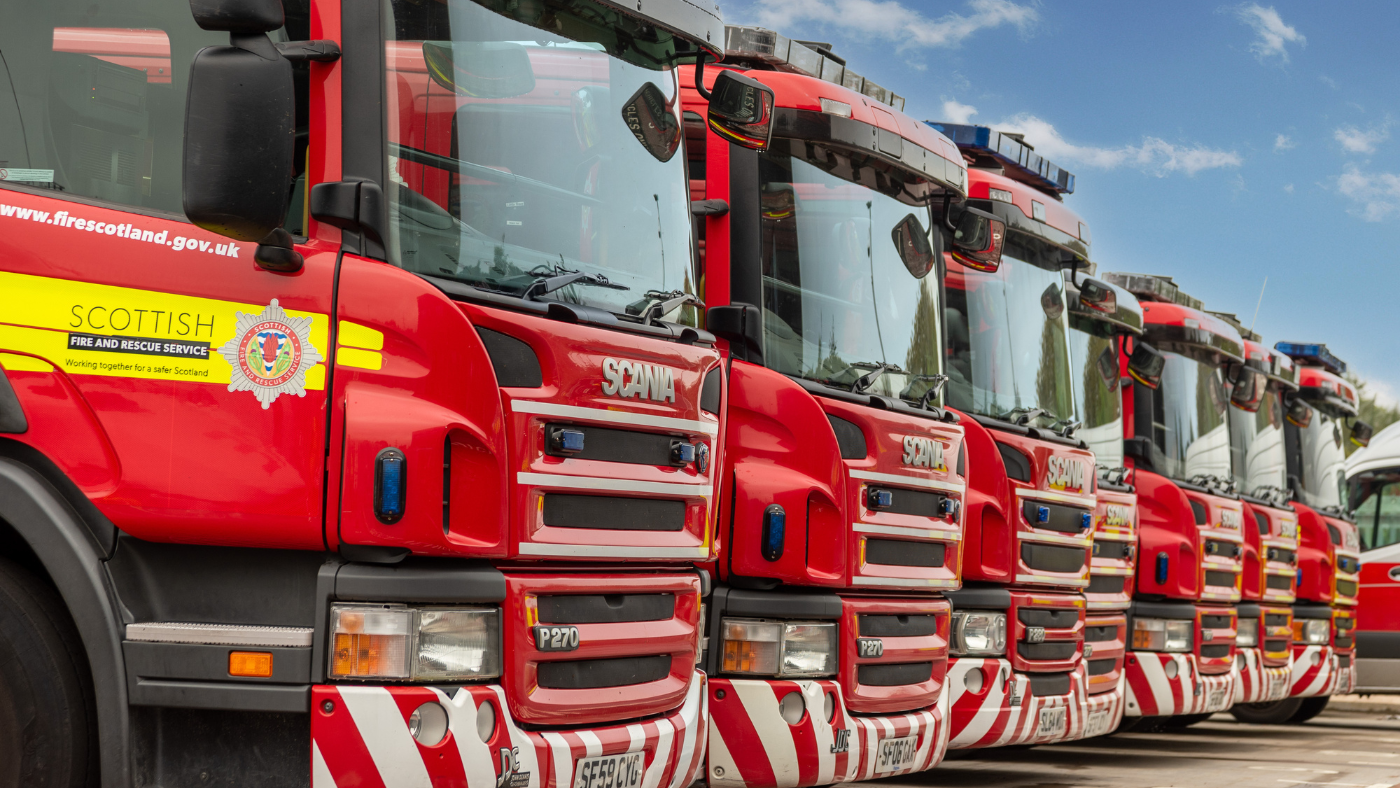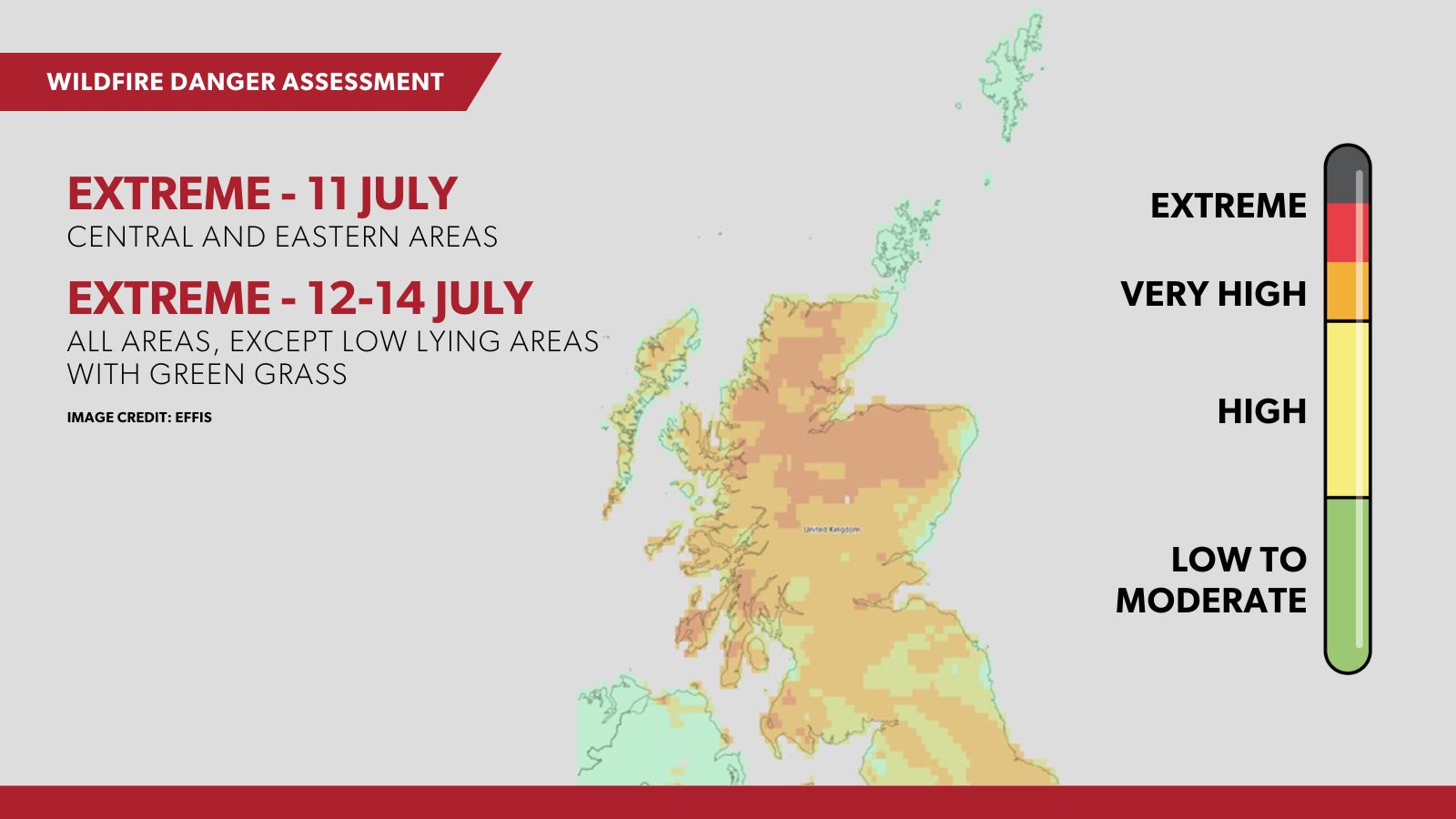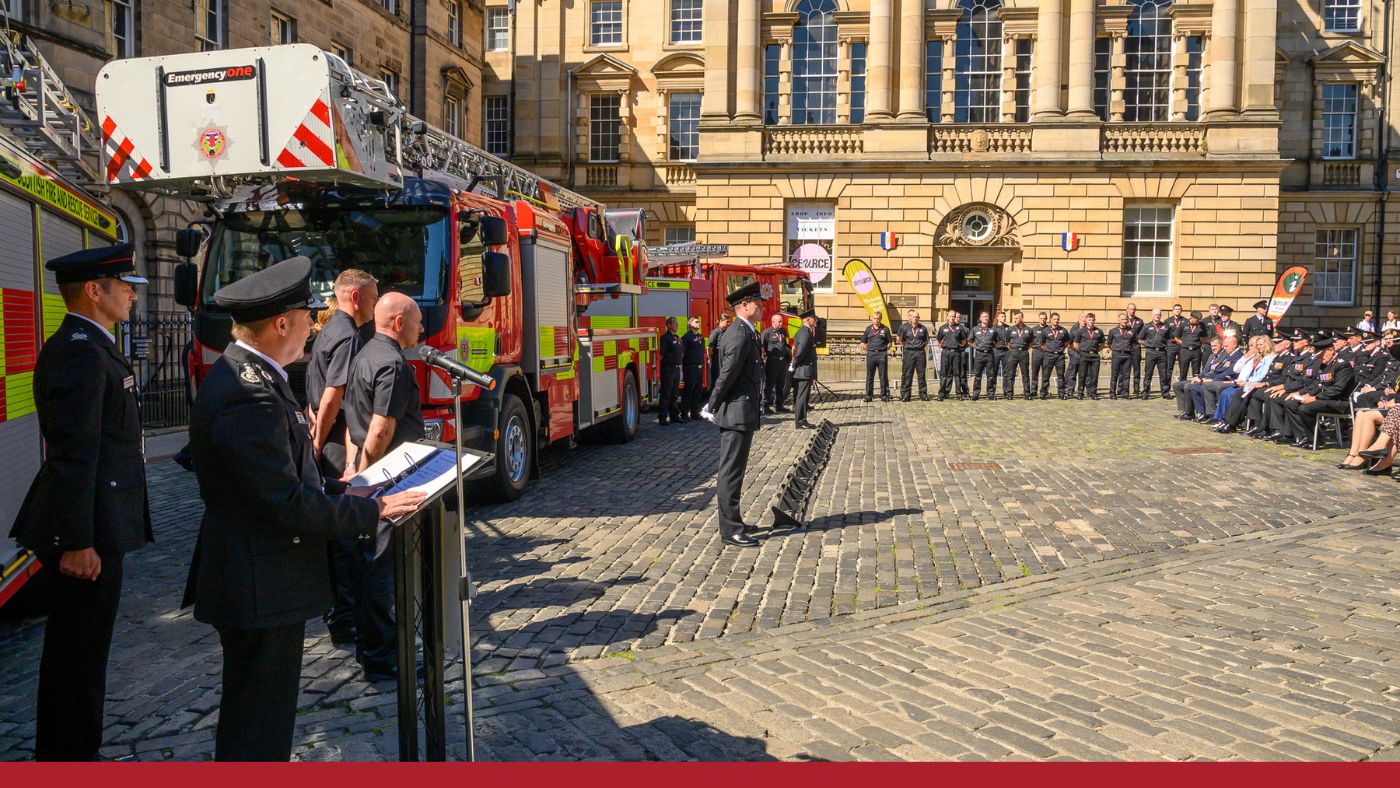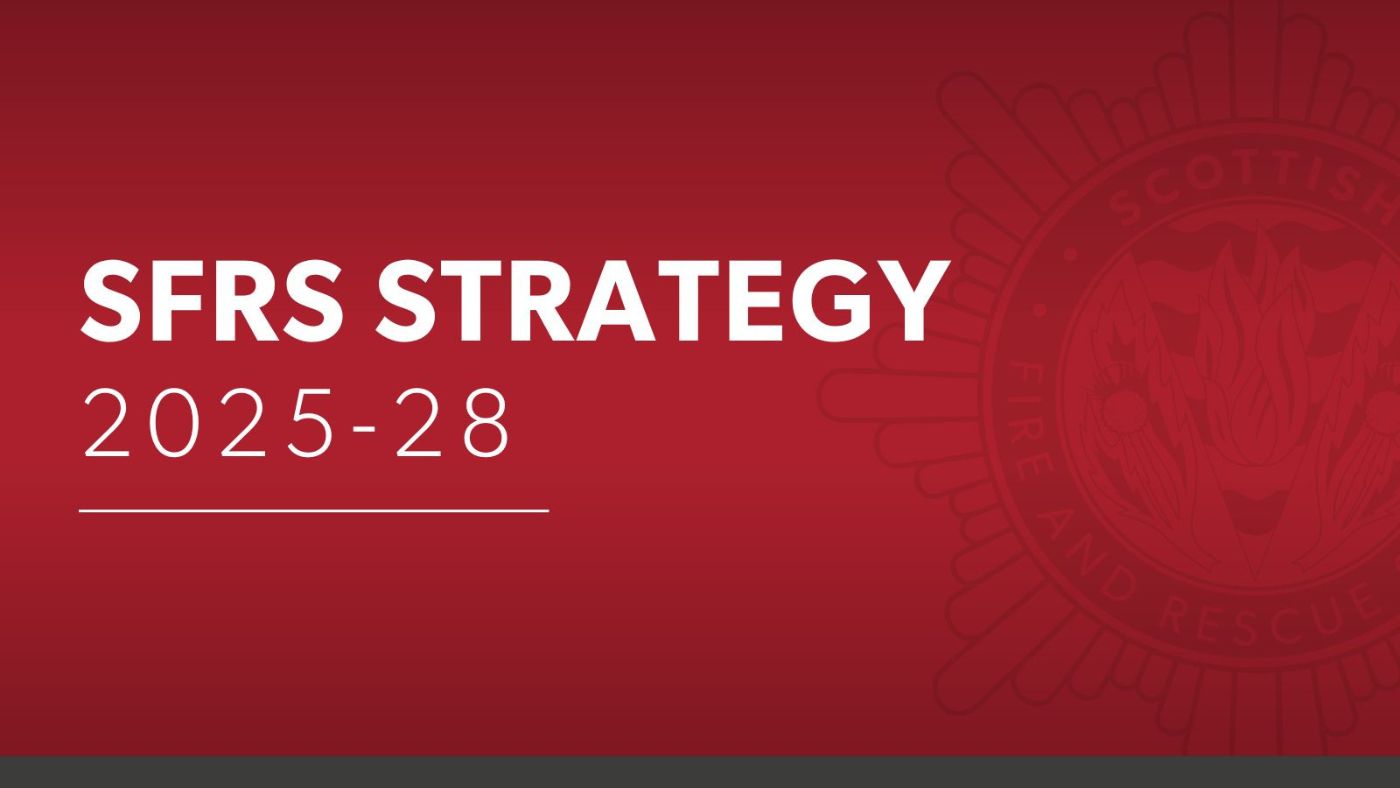News

Service Delivery Review – a public consultation by the Scottish Fire and Rescue Service
People are being asked to share their views on the future of the Scottish Fire and Rescue Service as part of a public consultation on 23 options for change.
Featured posts

Extreme risk of wildfire across Scotland
There is an extreme risk of wildfire across Scotland between Friday, 11 July and Monday, 14 July.

Remembering Firefighter Ewan Williamson
Firefighters paused to remember colleague Ewan Williamson who died sixteen years ago at the Balmoral Bar fire in Edinburgh

SFRS Strategy for 2025-28 is now available
The Strategy has been approved by the SFRS Board and is now available to view.
All news
Three Firefighters receive an Elizabeth Emblem
Three firefighters will receive an Elizabeth Emblem in recognition of their sacrifice in the line of duty.
Emergency service siblings take on cycling challenge in memory of mum
Update on wildfire incidents across Highland and Moray
Watch a video that highlights the extensive response to the wildfires and pays tribute to the dedication of the firefighters involved.
Emergency Services Football Challenge for the Killie Charity Cup
Two of Kilmarnock’s emergency services are set to battle it out on the football pitch, but the real winners will be a local children’s charity.
Firefighters attended more than 3000 deliberate fires last summer
Our firefighters responded to over 3,000 deliberate fires during just a three-month period.
Celebrating our newest firefighters and firefighter control graduates
We celebrated the graduation of trainee wholetime firefighters and firefighter control, with squads in Newbridge and Cambuslang completing charity challenges.

